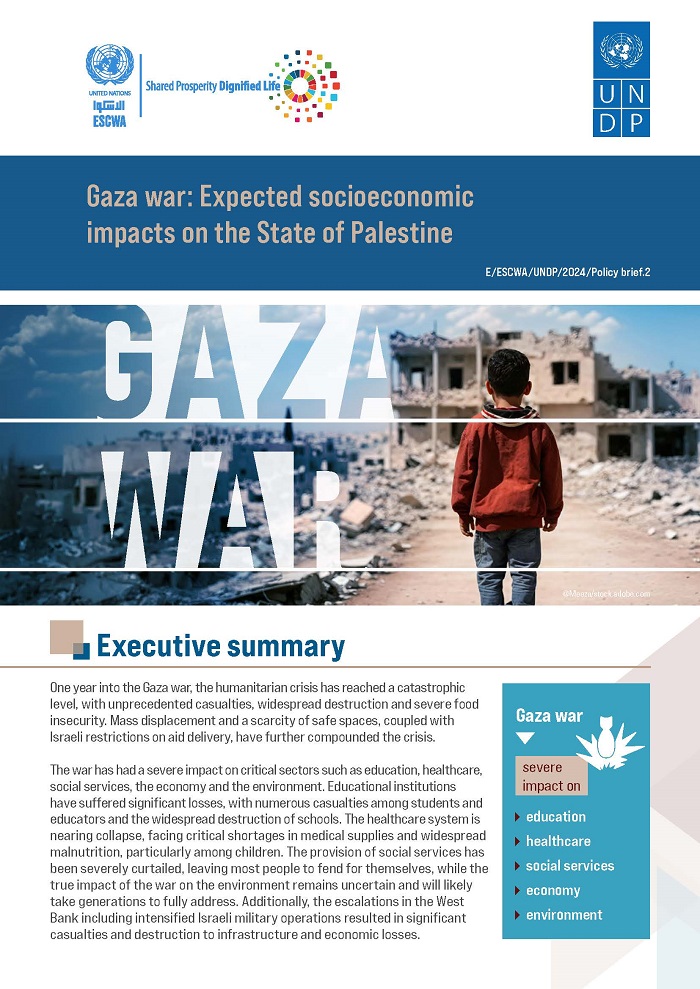
ESCWA Publication: E/ESCWA/ECRI/2009/Technical Paper.3
Country: Arab region, ESCWA Member States, Republic of Iraq, Lebanese Republic, State of Palestine
Publication Type: Reports & studies
Cluster: Governance and Conflict Prevention
Focus Area: Financing for development, Resilient development & conflict prevention
Initiatives: Governance and institution building
SDGs: Goal 16: Peace, Justice and Strong Institutions
Keywords: Armed conflicts, Economic development, Economic growth, Governance, Government policy, Recommendations, Governance, Private sector, Public sector, Recommendations
Strategies for development in conflict-affected countries in the ESCWA region: the role of the state and private sector
January 2009
This study recognizes the important role of the State as an engine of growth in achieving development goals, including its fundamental role in the development of the private sector. This is particularly relevant in countries affected by conflict in the ESCWA region due to the weak nature of the private sector and, therefore, the need for an increasingly responsible role of the State during the period of transition to a more resilient and developed private sector. The private sector in this region is still too small to be solely relied upon to generate high investment rates and to absorb unemployment. Indeed, political instability and fragile security impede foreign direct investment and discourage private investment. The role of the developmental State is crucial in harnessing resources for development, which includes private investment, especially in post-conflict countries.
Related content
Financing for development
, Resilient development & conflict prevention
,
This study recognizes the important role of the State as an engine of growth in achieving development goals, including its fundamental role in the development of the private sector. This is particularly relevant in countries affected by conflict in the ESCWA region due to the weak nature of the private sector and, therefore, the need for an increasingly responsible role of the State during the period of transition to a more resilient and developed private sector. The private sector in this region is still too small to be solely relied upon to generate high investment rates and to absorb unemployment. Indeed, political instability and fragile security impede foreign direct investment and discourage private investment. The role of the developmental State is crucial in harnessing resources for development, which includes private investment, especially in post-conflict countries.



